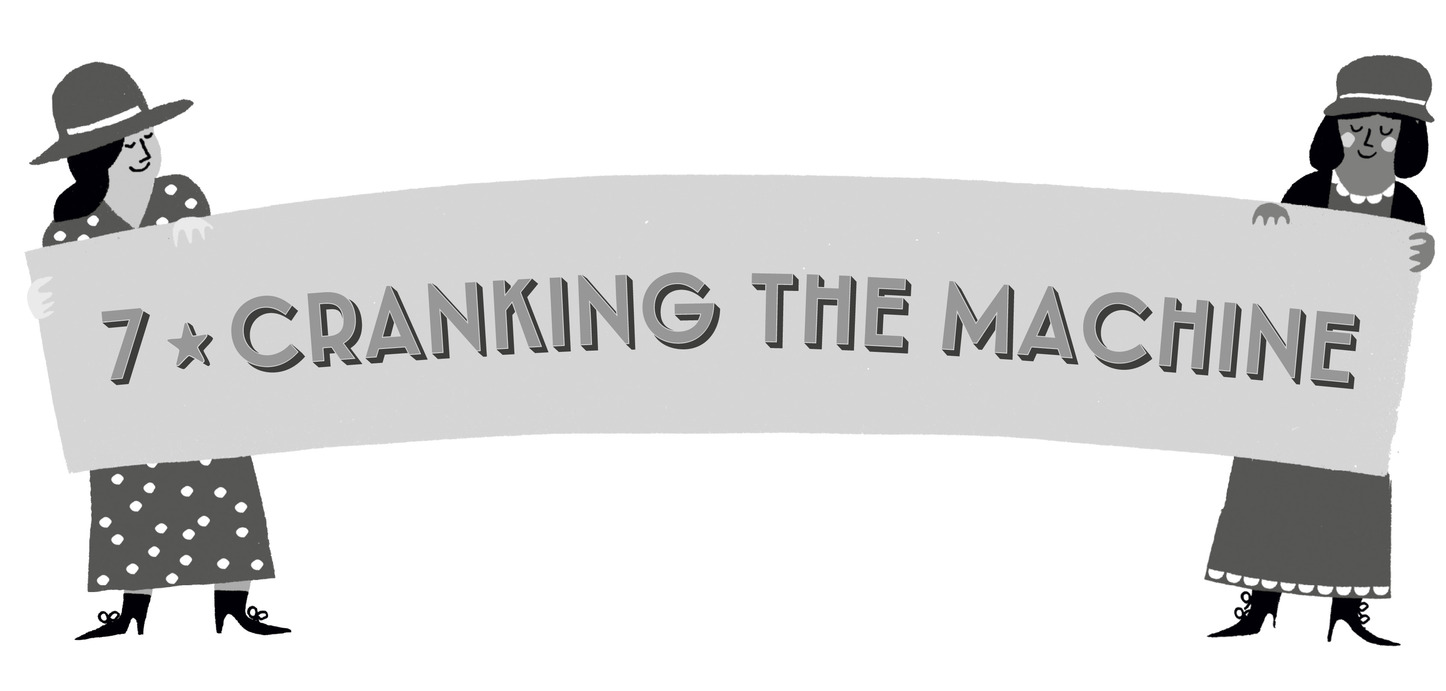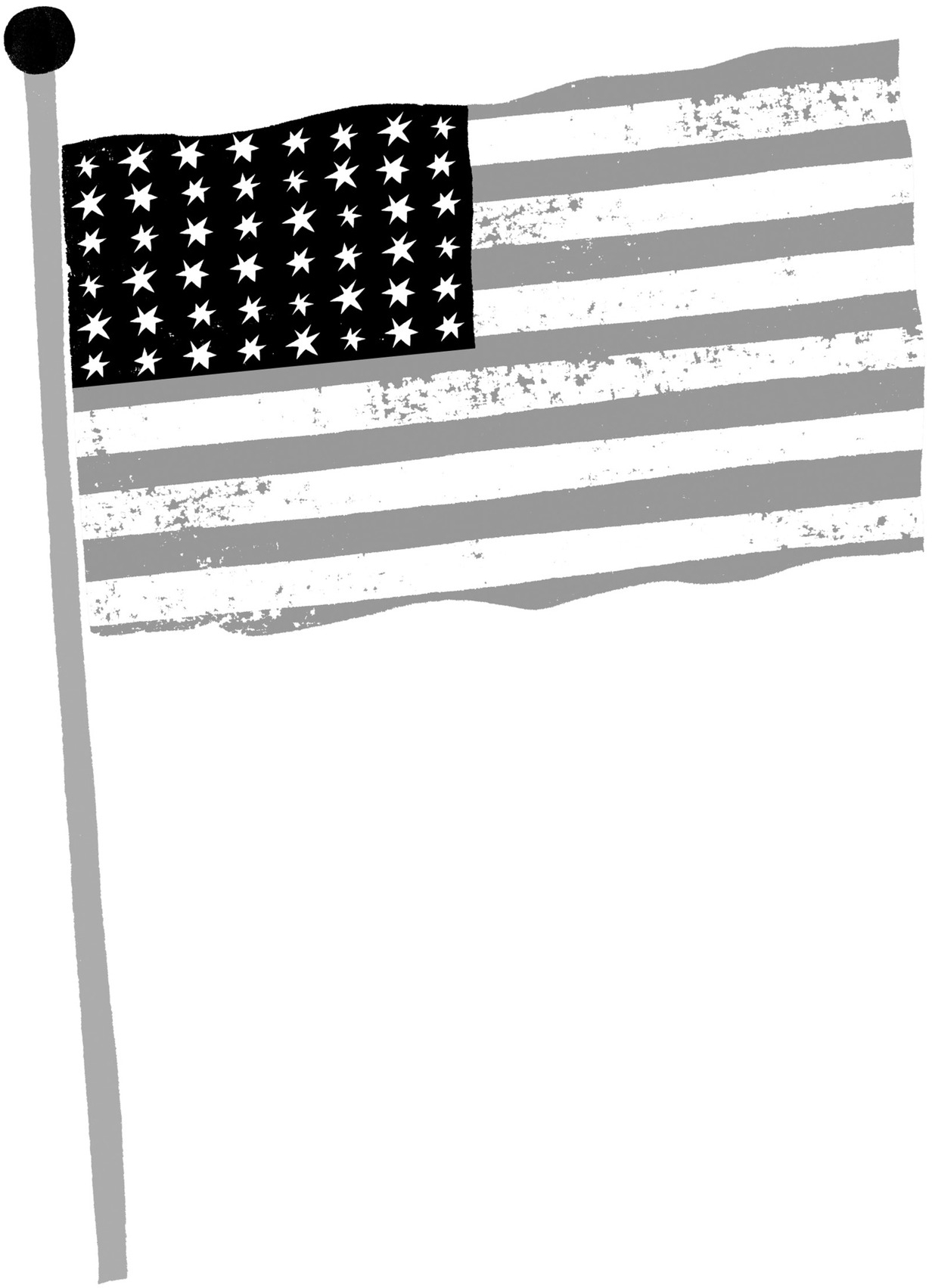
“I have come to help you win the thirty-sixth state,” Carrie Catt announced to the women and men gathered in her Nashville hotel room. She’d called them in for a pep talk. Everyone was buzzing with excitement and nerves as they settled in. The very idea of “winning” Tennessee was supremely optimistic, Carrie knew, but she’d always liked to view her glass as half-full.
Like an army commander, Carrie stood straight-backed before her Suff troops. Feeling everyone’s eyes on her, she issued her first orders:
Visit each legislator. Demand he sign the pledge to support ratification. Too many legislators are holding back. Be prepared for a few nos along the way. Don’t let that stop you. Just keep going!
With a shudder, Carrie remembered Catherine’s poll from her first morning in Nashville. So many legislators had not responded—or had refused to reveal where they stood.
“That unheard from number can and may defeat the ratification,” Catt told the Suffs. Go back and find them, go knock on their doors, she ordered. Tennessee’s friends of suffrage need to be shaken awake. The clock is ticking!
The hotel room erupted in cheers. They could do it, they assured her.
Throughout Carrie’s life, she’d witnessed the attitudes toward woman’s suffrage change ever so slowly. Its supporters had been beaten down so many times.
Suffrage hasn’t been defeated, Carrie had always insisted whenever they faced hardship. It’s only been postponed.
Everything the Cause had accomplished—every state won, every piece of legislation, every change of heart and shift in policy—was once considered utterly impossible. Until it wasn’t. The trick was to create a positive atmosphere, Carrie believed. Set an ambitious goal, then build your own highway to reach it.
If things looked iffy in Tennessee, she would never admit it in public. She would appear 100 percent optimistic. Hope was very motivating.
All over Tennessee, women could be seen roaming the countryside, hunting down legislators. The Suffs had to convince these men that ratifying the woman’s suffrage amendment was the best thing for their state and for America. The Antis, meanwhile, were at their heels, trying to convince legislators of just the opposite message.
With the vote on ratification just weeks away, there wasn’t a moment to lose.
Some women traveled by train to small towns to find their delegates. Others were carried in wagons down winding roads to isolated farmsteads, their dresses trailing in the mud. They were drenched by rainstorms, chased by watchdogs, and stranded by flat tires. But they found their men.
Carrie decided that she, Marjorie, and Tennessee suffrage leader Abby Milton would travel together throughout the state. Carrie knew her speeches were the absolute best way to get a crowd excited—even in the roasting heat.
Carrie Catt’s first speech in Tennessee was on Friday, July 23, at Nashville’s Commercial Club. Milling around the club’s elegant dining room, she saw the friends and clients of Nashville’s most powerful men shaking hands and chuckling with one another. They probably weren’t used to quieting down and listening to a woman. It was up to her to win them over, show them that ratification was in their best interests, too—not just women’s.
Carrie’s speaking talents were famous. Secretly, though, even after all her experience talking to crowds, her stomach did backflips whenever she took the stage. She’d calm herself by clasping and unclasping her hands behind her back, twiddling her fingers. Only people sitting behind could ever see. Her audiences never knew.
A ceiling fan whirled overhead, circulating the musky scent of tobacco smoke around the room. Nervous as she was, Carrie still felt relieved to see how many men had turned up. The club was packed. Reporters from the Nashville Tennessean and the Nashville Banner opened their notebooks and poised their pens. Seated in the audience was Major Edward Bushrod Stahlman, publisher of the newspaper the Banner. He turned in his chair to listen.
Edward was a Big Man around Nashville. He had once been an executive in the L&N railroad company. Though he no longer worked for the railroad, he still advocated for their interests in the editorial pages of the Banner—and railroad interests held a lot of sway over the city’s politics. As the publisher of a major newspaper, he could make or break a candidate or cause with his little finger. Many mayors, governors, and senators throughout the South feared him. He didn’t mind having enemies, though; all important men made enemies—it was a mark of power, he believed.
Carrie Catt peered out at the crowd and took a deep breath to calm her nerves. Chin held high, she stepped up to the podium.
She didn’t beat around the bush. She spoke confidently and directly, in terms the men could readily understand: Ratifying the suffrage amendment was the best thing for Tennessee. Rejecting it, on the other hand, would be bad for business and for Nashville’s future.

Besides, she noted, both presidential candidates were pushing for ratification. Why let them down? This was a glorious opportunity for America, for democracy! Shouldn’t Tennesseans stand together, men and women, and push this amendment through?
The crowd burst into applause. Carrie knew she’d pulled it off.
Major Edward Stahlman approached Carrie to introduce himself, his cane rapping toward her. Even at seventy-seven years old he was an energetic man, with strong features and a head of snowy hair. He gave her his word: Governor Roberts and ratification had his full support. The suffragists could count on him. Carrie grinned and thanked him. Everyone knew that Edward Stahlman was the kind of man you wanted on your side.
Following this first appearance, Carrie got an idea. Why not set this campaign off with a bang and give the Suffs a boost of good publicity? She and Marjorie Shuler quickly wrote a press release, declaring that ratification was basically clinched. Sure, it was too early to be certain, but Carrie was willing to make the leap. It was blue-sky optimism, and she was an optimist.
On Sunday night, July 25, Carrie, Marjorie, and Abby Milton dashed to Union Station to catch the overnight train to Memphis. Their press release would appear in the papers the very next morning. Carrie hoped it would make a splash.
Darkness blanketed the sky as the three women lay back in their sleeping cars that evening, rocked by the gentle rhythm of the train. But sleep wouldn’t come to them. Their minds were weighed down with worry. It wasn’t just because that press release they’d written was a tad exaggerated. That morning the Banner had published an attack letter written by Anti leader Nina Pinckard aimed at Carrie Catt. It accused Carrie of forcing women into the “turmoil” of politics against their wills. It also accused her of trying to destroy white, southern traditions by speaking out about votes for all women.
Publishing the letter sure was a strange way for Major Edward Stahlman’s paper to express its “full support” for the woman’s suffrage amendment….